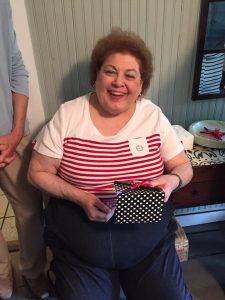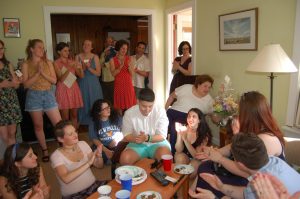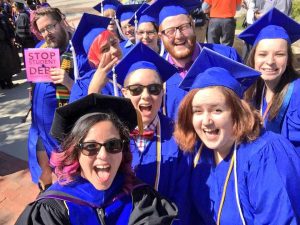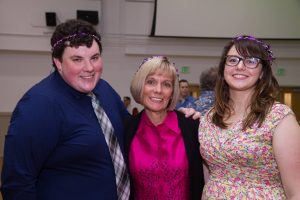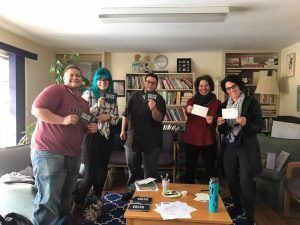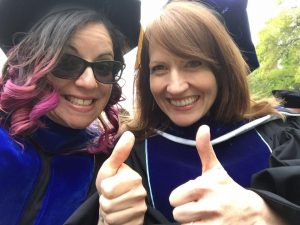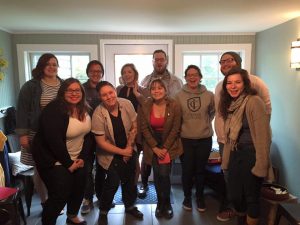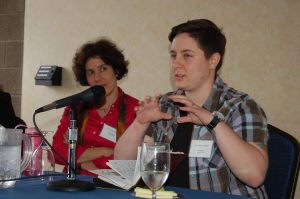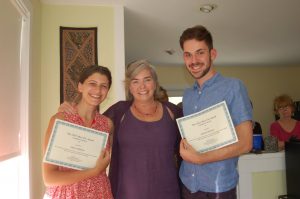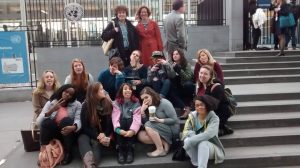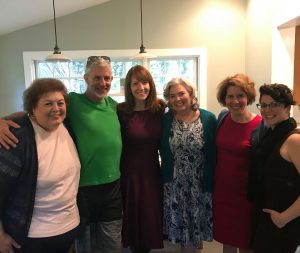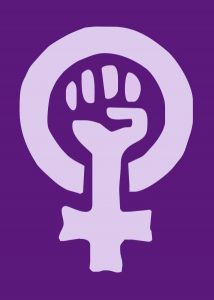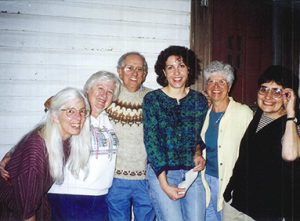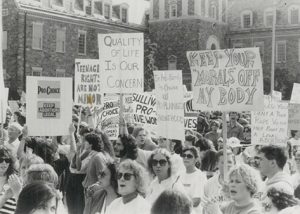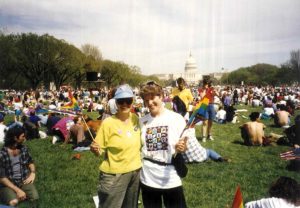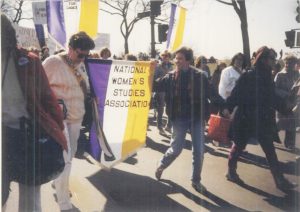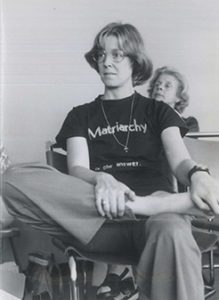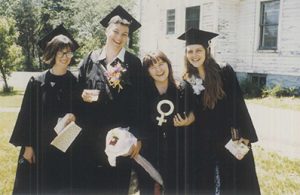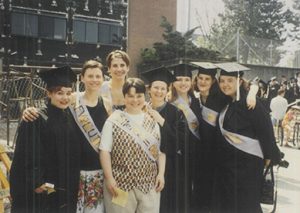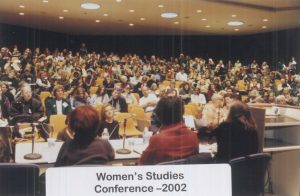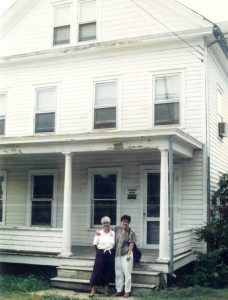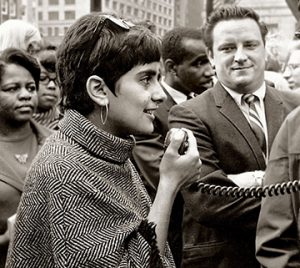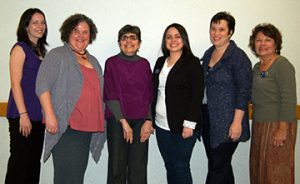WGSS Granted Department Status
After a decades-long struggle for legitimacy within the academy, the Women’s, Gender, and Sexuality Studies (WGSS) Program was granted department status last spring.
Faculty and affiliates of the newly christened Women’s, Gender, and Sexuality Studies Department, which was birthed by the feminist movement to challenge the male-dominated university curriculum, say the department is uniquely suited to address the issues of diversity, gender inequality, racism and homophobia that divide our nation.
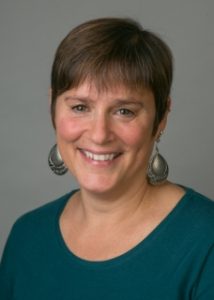
“WGSS is relevant because there’s significant gender inequality in the United States and throughout the world,” noted Anne R. Roschelle, WGSS department chair and sociology professor. “There’s still racism and homophobia, and all of the things we focus on in WGSS. So it’s relevant because we want to eradicate those inequalities and make society more equitable by sending our students out into the world with a framework for understanding the world and [a commitment] to trying to dismantle those inequalities.”
Then-coordinator Kathleen Dowley, an associate professor of political science, made an official request to Provost Lorin Basden Arnold and College of Liberal Arts and Sciences Dean Laura Barrett last spring to have the WGSS program designated a department. In her memo, written in consultation with Roschelle and WGSS faculty member Heather Hewett, Dowley argued that the designation would legitimize the social justice, diversity and scholarly work undertaken by WGSS faculty and acknowledge the body of research, scholarship and literature that composes its disciplinary foundation.
The discipline of WGSS, she noted, has not only stimulated the development of new questions and perspectives within traditional academic disciplines, but has emerged a dynamic discipline in its own right, rooted in a new type of critical, reflexive social theory.
In her memo, Dowley noted the most recent demonstration of campus support for WGSS – an 88-8 vote at the final Spring 2013 faculty meeting for a nonbinding resolution calling on the administration to support a path to department status.
The vote was noteworthy not only in the faculty’s overwhelming support for WGSS, but in the impassioned arguments by students, both WGSS majors and non-majors, which preceded it. With the retirement in 2012 of the program’s only full-time faculty member, Amy Kesselman, students believed the program’s future to be in jeopardy.
“The level of student involvement was higher than I remembered in my 18 years,” recalled Dowley. “Their commitment, willingness to show up. Students sometimes show up for a protest, and they’re done. But this required them to come, to do faculty governance and parliamentary procedure.”
Dowley shared the news of WGSS gaining department status with the active WGSS Facebook community, and said the student activists who’d worked tirelessly for the cause were “over the moon” upon hearing the decision.
“It really was a great example of activism and how you can make change through it, and that sometimes, it doesn’t impact you directly, but it helps the next generation of students,” noted Roschelle.
A History of Activism
Since its founding, WGSS has challenged the institutional status quo.
The program was first proposed by the Action for Women’s Studies, a group of New Paltz faculty members, students and staff that formed in February 1973 to address campus issues involving women. In 1974, a half-time coordinator position was approved, and the program began offering a minor in 1975. A major in Women’s Studies was approved in 1978 and on the books by 1979.
According to the 1984 self-study, the then-named Women’s Studies Program was among the largest programs of its kind in the SUNY system and among the first programs nationwide. In 1975, the program offered 21 women’s studies courses and enrolled 600 students.
Nancy Schniedewind, professor of educational studies and leadership, began teaching Women’s Studies courses upon joining the New Paltz faculty in 1975, and served as program coordinator from 1978-83. In its early years, the program focused on challenging the male-dominated cannon by bringing women’s scholarship into the curriculum.
Using a feminist framework, the program demonstrated its commitment to inclusivity, community engagement and participatory pedagogy, the latter drawing students hungry for a chance to truly engage with their professors and draw connections between their studies and personal experiences.
“Students, as you can see by the numbers, they ate it up,” said Schniedewind. “They were so ready for seeing their own lives reflected in the curriculum and being asked to participate actively in class.”
Schniedewind said the themes of personal and social change were always intertwined. The program pushed students who may have been drawn to the program for personal reasons to engage with the broader society and foster positive changes for women.
Schniedewind attributed the program’s strong community ties to the efforts of Kesselman, professor emerita and past Women’s Studies faculty member and coordinator, whom she called “the heart and soul” of the program for many years.
Kesselman said the program “always saw itself as academic but also advocating for women both inside and outside of the college.” She noted that many program graduates went on to work as health educators at Planned Parenthood of the Mid-Hudson Valley, as well as in battered women’s shelters and rape crisis centers, among other agencies.
Kesselman said the program functioned in a “non-hierarchical way,” adopting an organizational structure that differed from most programs and departments. A community member served on the program’s steering committee, alongside a student, part-time faculty and affiliates.
In spring of 2012, the Women’s Studies Program faculty and steering committee voted unanimously to change the program name to Women’s, Gender, and Sexuality Studies to better reflect curricular changes as well as changes in the broader discipline. This more inclusive name recognized the centrality of gender and sexuality to the discipline, while also emphasizing the program’s explicit focus on women and acknowledging the pioneering work of the program’s founders.
Today, the department has maintained its focus on personal and social change. Students in the introductory course must complete a “liberating action project,” which takes a variety of forms – students can come out to their parents, host an event at a dorm, or take part in campus activism like the sexual assault awareness initiative Take Back the Night. Students then reflect on their experiences by writing an essay, giving a presentation or creating a multi-media project.
In the department’s practicum course, students complete internships at community organizations that are feminist in orientation, and a new course, “Writing for Change,” teaches students how to write op-eds, press releases and blog posts to advocate for change using a feminist framework.
An Egalitarian Approach
Roschelle and Dowley both allayed fears that WGSS’s new department status might signal a movement away from its radical, activist roots. “There are definitely people who worry that once you become professionalized, institutionalized, departmentalized, you become part of the academy instead of something that’s challenging the academy,” Dowley noted, adding “in this case, everyone thought it was worth the risk.”
Roschelle said that the department will remain “egalitarian” by valuing the opinions of its steering committee—now composed of affiliates, adjuncts, a student and library liaison—while recognizing that it must function as a department.
This fall, the department resurrected the Women’s, Gender, and Sexuality Studies Colloquium Series, highlighting the research of junior affiliates Nicole Carr (Black Studies, Latin American and Caribbean Studies) and Vanessa Plumly (Languages, Literatures and Cultures), and plans to craft department bylaws this year.
Roschelle acknowledged Dowley’s tireless efforts in helping to usher in a new era of WGSS, and paid tribute to the female scholars and activists who blazed the trail at New Paltz.
“They were the pioneers of feminist scholarship who paved the way for us to have the kinds of careers that we’ve had,” she said.
—
For more information about the Women’s, Gender, and Sexuality Studies Department, visit the department website.
A Proud History: Images from the WGSS Archives

